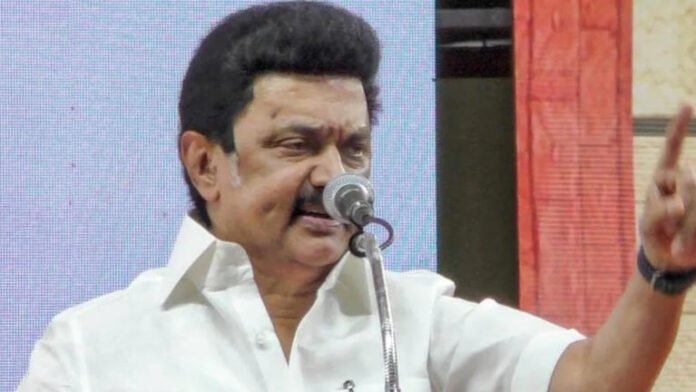Chief Minister MK Stalin has announced the formation of a high-level committee to advocate for greater state autonomy. The decision to create this panel comes amid rising tensions between the state government and Governor R.N. Ravi, particularly regarding the latter’s role in the legislative process and his perceived interference in state matters.
The newly formed committee, which will include senior ministers and legal experts, is tasked with examining the scope for enhancing state powers and addressing the contentious issues that have emerged over the past months. The move has drawn attention not just from political circles in Tamil Nadu but also from the broader national discourse on federalism and state rights.
Rising Tensions Over Governance and Legislative Autonomy
The growing friction between the Tamil Nadu government and Governor R.N. Ravi has primarily centered around his approach to the functioning of the state legislature and his delay in giving assent to bills passed by the state government. In recent months, several key pieces of legislation, including the anti-NEET Bill and Bills related to education policy, have faced long delays in receiving the Governor’s approval, leading to accusations of interference in the state’s autonomous functioning.
The Tamil Nadu government has been vocal in its criticism of the Governor’s actions, with Chief Minister MK Stalin asserting that such delays undermine the elected state government and impede its ability to serve the people. Stalin’s administration has accused the Governor of acting as a representative of the central government rather than upholding the Constitution’s spirit of federalism, where states are granted a significant degree of autonomy.
In response to the ongoing tensions, Stalin’s panel will specifically look into the constitutional provisions related to the relationship between the state and the Governor, and it will propose measures to strengthen the state’s ability to function without undue interference from the Governor’s office.
Strengthening Federalism and State Rights
Federalism, the system of governance that divides powers between central and state governments, has been a long-standing point of debate in India. Tamil Nadu has been at the forefront of advocating for greater state autonomy, and Stalin’s move to create the committee is seen as part of the state’s ongoing push for a more decentralized form of governance.
A key issue highlighted by Stalin and his party, the Dravida Munnetra Kazhagam (DMK), is the increasing centralization of power in the hands of the Union government. The DMK has long been critical of what it perceives as a “top-down approach” by the Centre, which, according to them, marginalizes state governments in decision-making processes. The panel will focus on ensuring that Tamil Nadu can assert its rights over matters related to education, healthcare, and other areas where the state feels the central government’s influence has been overbearing.
The Political and Legal Ramifications
Politically, this move comes at a time when the relationship between the Governor’s office and state governments across India has become a subject of scrutiny. Several state governments, particularly those in opposition to the central BJP-led government, have expressed concerns over the role of Governors in stalling legislation or pushing agendas contrary to state interests.
Legal experts suggest that Stalin’s move could lead to a review of the powers vested in the Governor and may prompt a larger national debate on how federalism should function in contemporary India. While the Governor’s position is largely ceremonial, the delay in the passage of laws has led some to question the extent of their power and influence in the legislative process.
The committee’s findings could lead to reforms that allow state governments to function more freely without external pressures. However, this will likely spark debates over the balance of power between the Centre and states, which has been a subject of intense political discourse since the inception of India’s Republic.
Public and Political Reactions
The formation of the panel has been met with mixed reactions. Allied parties of the DMK, including the Congress and Indian Union Muslim League (IUML), have expressed strong support for Stalin’s initiative, calling it a necessary step to protect the rights of the people of Tamil Nadu. The Tamil Nadu Congress Committee (TNCC) has urged the state to ensure that its elected government is allowed to function without the interference of the Governor.
On the other hand, opposition parties, particularly the BJP, have criticized the move, accusing Stalin of attempting to undermine constitutional institutions and weaken the role of the Governor. Some BJP leaders have argued that the Governor’s actions are in line with the constitutional framework and that the Chief Minister’s actions are politically motivated.
The formation of the panel by Chief Minister MK Stalin marks a significant move in the ongoing political and constitutional standoff between the Tamil Nadu government and the Governor. As the panel embarks on its work, it will examine ways to ensure greater state autonomy and safeguard the rights of the people of Tamil Nadu. With the issue of federalism taking center stage, this development could have wide-reaching implications for the future of India’s political landscape and its system of governance.

